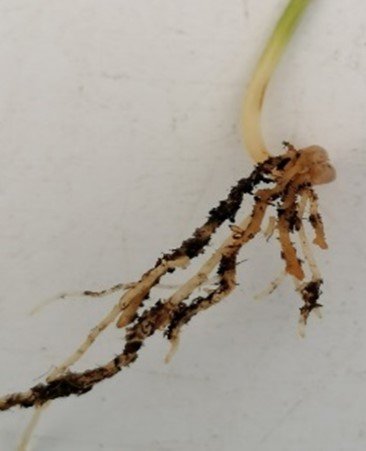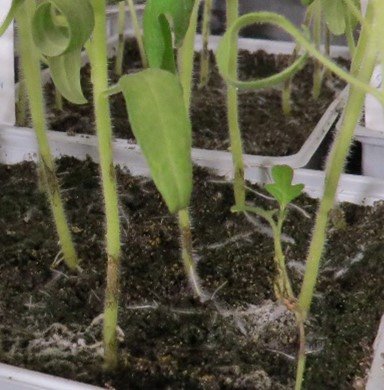France
May 28, 2024
For this new year, the work of the SeedBioProtect project continues. This project, funded by Plant Alliance and Biocontrol Consortium, aims to dissect the response of seeds treated with solutions during seed development/maturation and germination at molecular and metabolic scales and at physiological scales by phenotyping under biotic constraints.

To be able to study these hypotheses, the project focuses on the study of pathogens responsible for damping off such as Pythium irregulare on wheat and Rhizoctonia solani on tomato and is composed of 4 Work Packages:
WP1 – Influence of the application of a biocontrol solution on the mother plant during seed development and to study the induction of defense mechanisms.
WP2 – Influence of a biocontrol solution, this time directly applied to seeds, on the induction of defense mechanisms and on the development of future seedlings.
WP3 – Study of the stability and intergenerational transmission of the seed’s microbiota of WP1 and WP2 following the application of alternative treatments via sequencing of phylogenetic biomarkers.

WP4 – Develop in vitro and in vivo methods to measure seed protection effectiveness via the application of biocontrol solutions.
GEVES is involved in WP4 “Development of robust evaluation tools for the effectiveness of biocontrol solutions in seed protection”.
In order to continue the work, a new intern was welcomed into the team, Méline GILME (M2 Université Agros Campus Ouest). She is in charge of the technical implementation and more precisely of the in vivo screening of the seed methods resulting from WP1 and WP2. After a year of development of the Pythium pathosystem on wheat (carried out by Carole Toueri – M2 University of Montpellier in 2023), all the modalities (96 in total) are tested under conditions of biotic stress. Various factors are evaluated: 4 genotypes, 4 products and 3 production sites. Based on a rating scale, the disease index will make it possible to verify differences in the effectiveness of these factors.
Parallel to this multiple comparison test, methodological work on the development of the Rhizoctonia solani pathosystem on tomato is in progress. Following the reception of a new strain from the University of Sassari in Italy, new trials with variations of disease pressure are underway with the aim of validate this pathosystem. The first plants contaminated by this new strain present characteristic symptoms and seem promising for the future. Ultimately, 96 modalities are also to be evaluated on this tomato pathosystem.